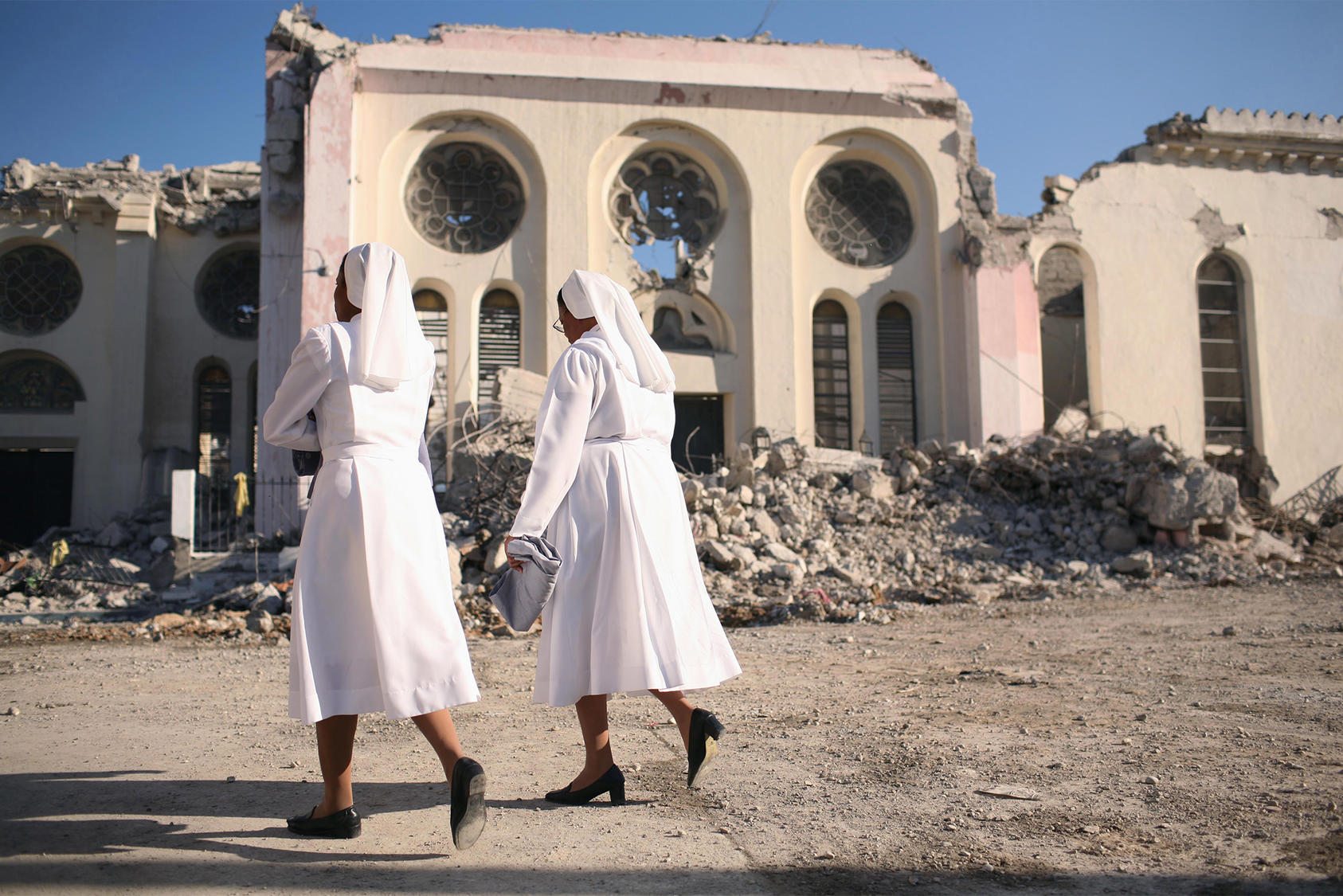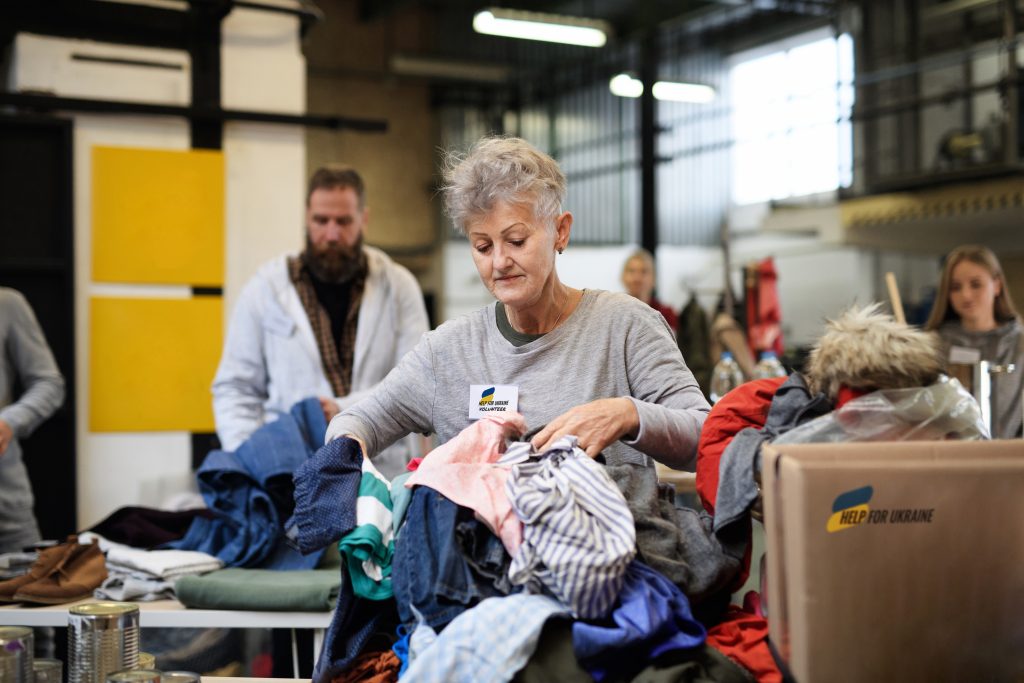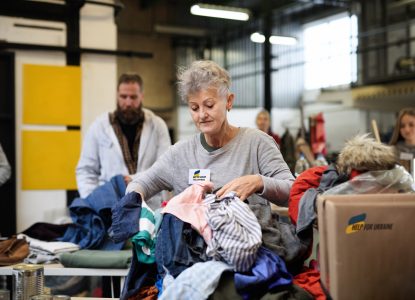As policymakers address the most pressing issues in the Americas, religious actors can be vital partners in peace and security.
This article originally appeared on the U.S. Institute of Peace’s website. Read the original published version here.
– – –

- Supporting crisis responses to refugees and displaced persons including through mental health and psychosocial support;
- Partnering to address climate change challenges and public health-related drivers of conflict including around COVID-19; and
- Challenging violence and discrimination.
Support for Refugees and Displaced Persons to Break Cycles of Violence
Over 18.4 million people are displaced across the Americas — a result of violence, criminal activities, socioeconomic challenges and ongoing conflict. Forced displacement can be traumatic, and, if unaddressed, can exacerbate cycles of violence.
That means for peace to be sustainable, individual and community trauma must be addressed. Religious actors, rituals and communities can have particularly significant roles in addressing the mental health and psychosocial needs of forced migrants, refugees and internally displaced persons.
As USIP’s research and work with displaced trauma survivors in Colombia and Venezuela shows, there is a correlation between the effectiveness of peacebuilding programs and the fulfillment of mental health and psychosocial needs.
Furthermore, in countries where extreme forms of violence have occurred, trauma must be understood not only as a health problem but also as a sociopolitical issue. Trauma in these contexts is more than the consequence of violent conflict — it’s also the root cause for new cycles of war, segregation, discrimination, fear and poverty.
Latin American psychology, particularly social liberation psychology, has long stressed that to free people from trauma, one must be willing to do work to overcome social injustices — an approach that also values sacred mythologies as powerful sources of resilience. USIP´s research in Colombia and Venezuela has shown that religious actors can contribute to effective psychosocial support by highlighting spiritual and religious practices that can help transform suffering from a secret or “private” reality into something social and shared. Also, religious actors are in a privileged position to help dispel stigma against mental health problems and advocate in favor of mental healthcare.

Partners in Combatting Environmental and Public Health Challenges
Environmental factors like climate change and public health emergencies such as the COVID-19 pandemic are creating fissures in peace and stability around the world.
However, religious actors have long worked to address some of these challenges — and are well equipped to continue. As the Summit of the Americas highlighted the urgent need for enhanced intra-hemispheric collaboration on climate change, religious advocacy and interreligious cooperation between indigenous actors and ecumenical groups has already helped to advance rainforest protection that transcends nation-state borders in the Amazon.
Many religious teachings and scripture promote values like stewardship and care for the earth, offering a rally point for interreligious engagement and advocacy. For example, the 2015 Vatican encyclical titled “Laudato si” features an appeal from Pope Francis for global action to care for the earth and humanity. The Faiths for Forests Declaration, signed by over 900 religious leaders from 125 countries at the 10th World Assembly of Religions for Peace in 2019, demonstrated the moral impetus of religious actors to respond proactively to the climate crisis. Inter- and intra-religious engagement to address environmental issues like climate change can foster powerful coalitions that help build bridges across communities.
Often enmeshed within the heart of communities, religious institutions and organizations also have a long tradition of providing basic social services like health care, regularly connecting with people at their most vulnerable. This gives religious actors important insights into local dynamics and grievances — issues that, if not addressed, can manifest as fuel for violence and conflict.
At the same time, religious actors can provide solace, comfort and hope amid despair. Since the earliest days of the pandemic, religious leaders, faith-based institutions and interreligious initiatives have offered care to the most vulnerable in the absence of government (or sometimes in cooperation with national governments) throughout the Americas.
Utilizing their status as often-respected community leaders whose voices carry leverage, religious actors continue to lead vaccination campaigns and have spearheaded messaging about best practices for public health and safety. Operating locally, they also serve as mediators — addressing grievances brought on by the pandemic before they transform into bigger drivers of tension or violent conflict.
Moral Authorities Against Violence and Discrimination
Because of their moral imperative, religious actors can be critical in both bolstering and undermining trust in — and therefore the sustainability of — peace accords. They can have vital roles in formal peace processes, serving as mediators or advocates, as well as at the forefront of nonviolent action movements at the grassroots level, mobilizing civil society for social justice and human rights issues affecting their communities. These varying roles give religious leaders the ability to communicate and amplify causes from local to national levels, liaising between stakeholders and across sectors.
They can also detect early warning signs of tensions before they spill over into violence and amplify calls for peace. For example, the multi-religious efforts of Religions for Peace-Haiti have coalesced around shared values and hope, calling for strength and healing amid the challenges that have rocked the country’s stability — from earthquake recovery to calls for political reform to last year’s assassination of President Jovenel Moïse.
Another example of how religious leaders can contribute as peacebuilders is that of Francisco de Roux, president of the Colombian Truth Commission and respected Jesuit priest. He represents the embodiment for how a religious leader can use their moral imperative to help a country overcome cycles of violence. De Roux has devoted his life to reconciliation and mediation efforts throughout Colombia, using a victims-based approach to peacebuilding.
During the presentation of the Final Report of the Commission he stated:
“We make a call to liberate our symbolic and cultural world from the traps of fear, anger, stigmatization and mistrust … To assume together, through democratic means, the responsibility for the social and institutional changes that coexistence demands.”
– – –
Melissa Nozell is the program officer for religion and inclusive societies at the United States Institute of Peace (USIP), where she leads initiatives to research and support the effective engagement of religious actors in conflict prevention and resolution.
Andrés Martínez is a program manager for Religion and Inclusive Societies at the U.S. Institute of Peace, where he leads the Religious and Psychosocial Support for Displaced Trauma Survivors project in Colombia and Venezuela. This project seeks to facilitate more effective collaboration between religious actors and mental health professionals who offer support to conflict-affected communities — with a focus on displaced persons who have experienced traumatic stress. His areas of expertise include global mental health, nonviolent movements, and gender.


